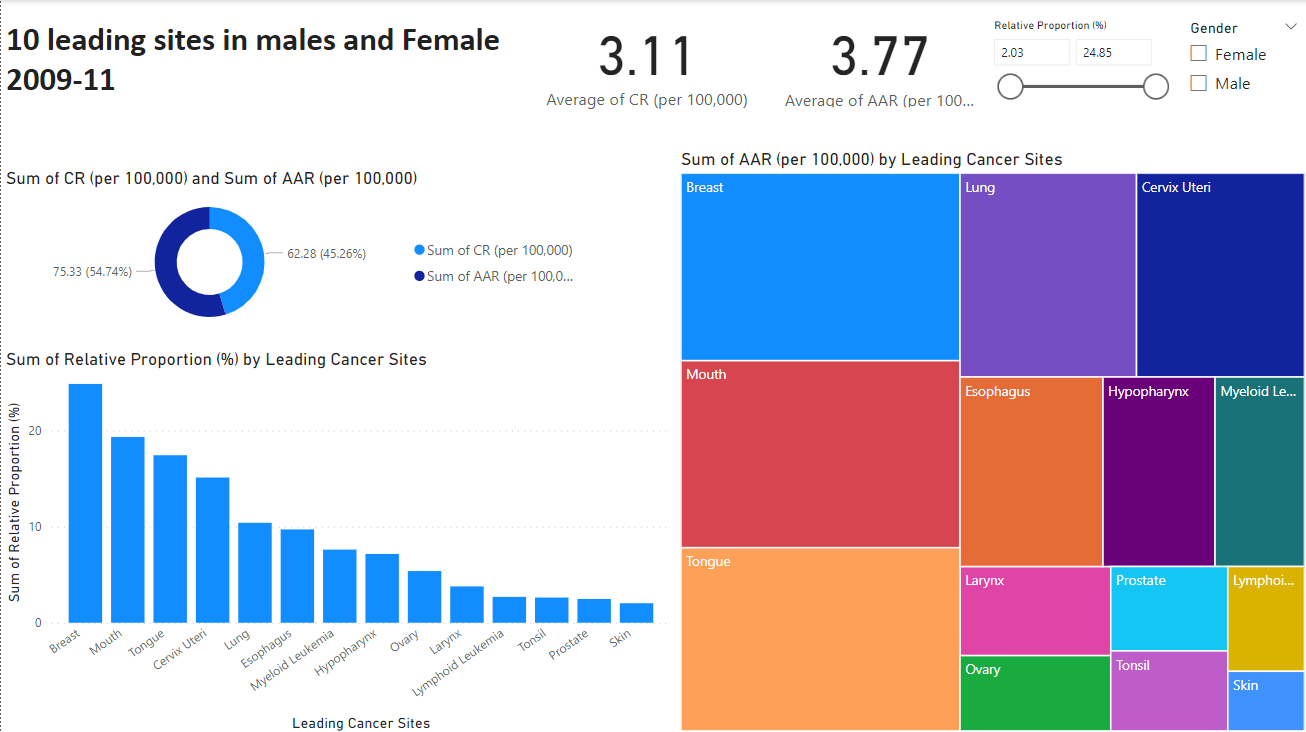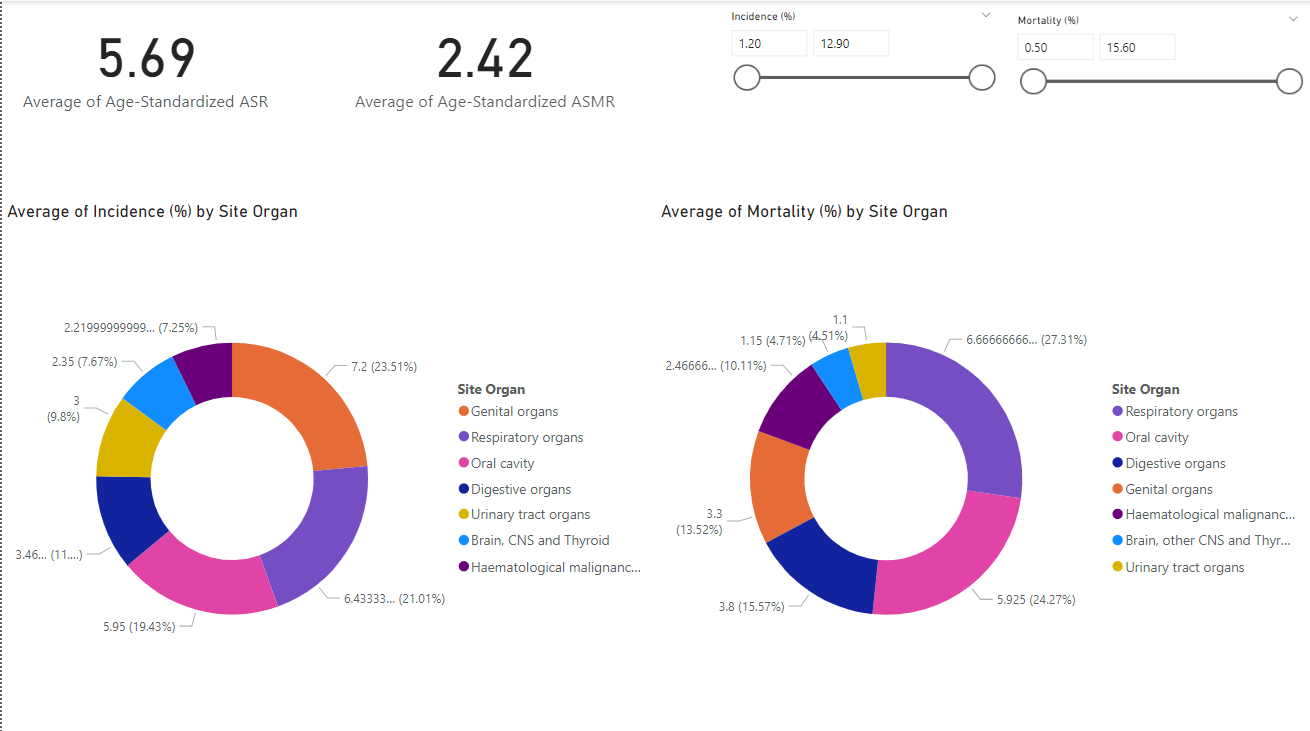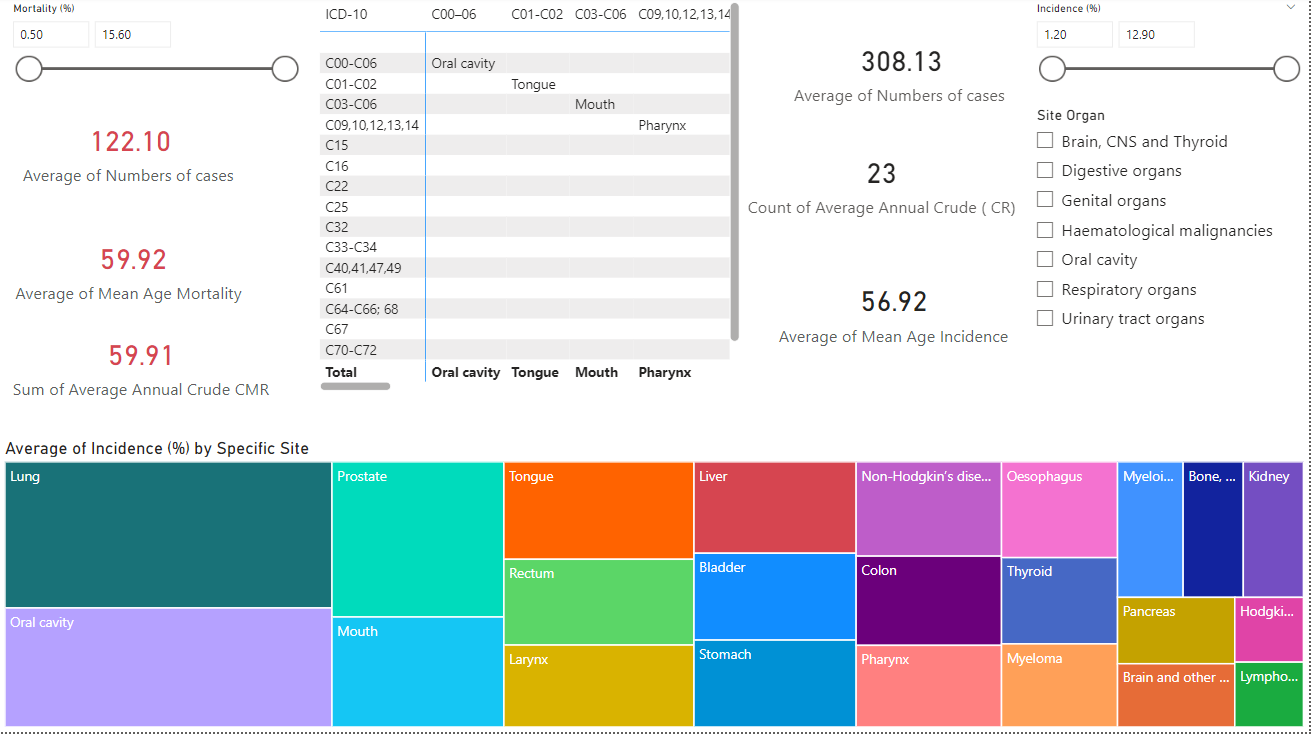10 leading sites in males and Female 2009-11
Leading Cancer Sites, CR (per 100,000), AAR (per 100,000)

Comparative Study of Incidence Rate vs Mortality Rate
Understand the incidence and mortality rate by organ site

Incidence Rate vs Mortality Rate Southern India
Detailed study report linked with Age, Organ Site Incidence and Mortality rate
